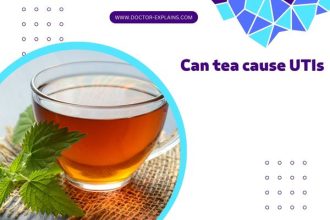The short answer.
Limiting certain foods and drinks is often advisable in response to frequent urination (due to polyuria or bladder irritation). Although everyone’s body reacts differently, the following items might exacerbate symptoms, They include:
- Caffeinated Beverages
- Alcoholic Drinks
- Citrus Fruits
- Spicy Foods
- Tomatoes and Tomato-Based Products
- Artificial Sweeteners
- Chocolate
- Carbonated Drinks
- Dairy Products
Key Facts:
- Food-related Frequent urination occurs through two mechanisms: foods that have a diuretic effect or foods that irritate the urinary bladder.
- Caffeine, found in beverages like coffee, tea, and many soft drinks, can increase urine output, exacerbating symptoms.
- Alcohol, a known diuretic, can also contribute to more frequent urination.
- The high acidity of citrus fruits like oranges and lemons may irritate the bladder, triggering more frequent urges to urinate.
- Spicy foods can provoke the bladder, leading to increased urination in some people.
- The acidity found in tomatoes and their derivatives might provoke bladder discomfort, leading to more frequent urination.
- Artificial sweeteners, common in diet food and drink, might act as bladder irritants for some individuals.
- Chocolate, due to its caffeine content, might increase urination frequency.
- Carbonated beverages can cause bladder irritation in certain people, leading to more frequent trips to the bathroom.
- Dairy products might worsen symptoms of bladder irritation for certain individuals.
The Two mechanisms by Which food causes frequent urination.
Foods can cause or aggravate existing frequent urination by one of two mechanisms:
- Polyuria: Your body makes too much urine due to conditions like diabetes or kidney disease. More urine means more bathroom trips.
- Bladder Irritation: Your bladder becomes overly sensitive, and even small amounts of urine trigger the need to urinate. This can be due to infections or certain foods and drinks.
Both lead to frequent urination, but for different reasons: one is about excess production, and the other is about heightened sensitivity.
here is a detailed comparison:
| Diuretic Effect | Bladder Irritation | |
|---|---|---|
| Definition | A diuretic effect means that a food or drink increases urine production by promoting the removal of salt and water from the body. | Bladder irritation refers to a condition where certain food or drinks make the bladder more sensitive, causing an urge to urinate more frequently. |
| How it Works | Diuretics work by affecting the kidneys, increasing the amount of salt and water that comes out of your body. This then increases urine production. | Certain substances in food or drinks can irritate the bladder lining, making it overly sensitive and prompting it to signal the need to urinate even when it’s not full. |
| Symptoms | Increased volume of urine, more frequent urination, and possible thirst due to fluid loss. | Increased frequency of urination, urgency to urinate, possible discomfort while urinating. Volume of urine may not necessarily increase. |
| Examples of Foods/Drinks | Coffee, tea, alcohol, and certain fruits and vegetables like watermelon, celery, and cucumbers have a diuretic effect. | Citrus fruits, spicy foods, tomatoes, carbonated drinks, and artificial sweeteners can irritate the bladder. |
| What to Do If You Have Frequent Urination Issues | You might need to monitor or limit your intake of foods and drinks with a high diuretic effect. | Try to identify and limit your intake of foods and drinks that irritate your bladder. |
9 Foods and Drinks that May Increase Urinary Frequency
1. Caffeinated Beverages
Caffeine is a known stimulant and diuretic, often leading to increased urine production. It is present in:
- Coffee: Even a single cup of coffee can provoke symptoms in some people.
- Tea: Both black and green teas contain significant amounts of caffeine.
- Soft drinks: Many sodas and energy drinks contain caffeine and might exacerbate symptoms.
- Certain medications: Some over-the-counter drugs contain caffeine, so always check labels carefully.
By limiting or avoiding these beverages, you might notice a decrease in urinary frequency.
2. Alcoholic Drinks
Alcohol can also act as a diuretic and irritate the bladder lining. This is true for:
- Beer: Even non-alcoholic varieties can increase urination due to their diuretic properties.
- Wine: Both red and white wines can trigger symptoms.
- Spirits: All forms of spirits, including whiskey, vodka, and gin, can potentially worsen symptoms.
It might be worth exploring alcohol-free alternatives if you notice a link between alcohol consumption and increased urinary frequency.
3. Citrus Fruits
Citrus fruits are known for their high acidity, which might irritate the bladder and increase urination frequency. These include:
- Oranges: Whether consumed as a fruit or juice, oranges can provoke symptoms in some people.
- Lemons: Lemon juice and lemon-infused water are common culprits.
- Grapefruits: Both the fruit and the juice can irritate the bladder.
- Limes: Like the other citrus fruits, limes have high acidity and can provoke symptoms.
If you notice increased urination after consuming citrus fruits, consider replacing them with less acidic fruit options like bananas or apples.
4. Spicy Foods
Spicy foods can also irritate the bladder and trigger increased urination. This category includes:
- Hot peppers: Whether in raw form, in sauces, or as spices, hot peppers can irritate the bladder.
- Curries: Many curries are made with a range of hot spices.
- Spicy snacks: Snacks like spicy chips or nuts can provoke symptoms.
Switching to milder versions of your favorite dishes might help reduce urinary frequency.
5. Tomatoes and Tomato-Based Products
The high acidity of tomatoes and tomato-based products can cause bladder irritation. These include:
- Fresh tomatoes: Even raw tomatoes can provoke symptoms in some people.
- Tomato sauces: Often used in pasta dishes and pizzas.
- Tomato juice: Can trigger symptoms in some people.
Try replacing tomato-based sauces with white or cheese-based alternatives and see if your symptoms improve.
6. Artificial Sweeteners
Found in many diet foods and drinks, artificial sweeteners might irritate the bladder in some individuals. Examples include:
- Diet sodas: Most diet sodas use artificial sweeteners instead of sugar.
- “Sugar-free” snacks and candies: These often contain artificial sweeteners.
- Certain kinds of gum: Many sugar-free gums use artificial sweeteners.
Consider opting for natural sweeteners, such as honey or maple syrup, in moderation.
7. Chocolate
As a source of caffeine, chocolate can increase urination frequency. This applies to:
- Dark chocolate: This type contains more caffeine than milk chocolate.
- Hot chocolate drinks: These often contain caffeine.
- Chocolate-flavored desserts: These can sometimes be high in caffeine, depending on the amount and type of chocolate used.
Reducing your chocolate consumption could potentially help manage symptoms.
8. Carbonated Drinks
Carbonated drinks can cause bladder irritation and increased urination in some people. Examples include:
- Soda: Both diet and regular varieties can cause symptoms.
- Sparkling water: Even without added flavors or sweeteners, the carbonation can irritate the bladder.
- Champagne: The bubbles can lead to bladder irritation.
Flat alternatives like still water or non-carbonated juices may be preferable options.
9. Dairy Products
Certain individuals might find that dairy products worsen symptoms of bladder irritation. This category includes:
- Milk: Both whole and skim varieties can provoke symptoms in some people.
- Cheese: Especially strong or aged cheeses can irritate the bladder.
- Yogurt: Even though it’s often considered a healthy snack, it might provoke symptoms in certain individuals.
Experiment with dairy-free alternatives like almond or soy milk to see if they improve your symptoms.
Personalize Your Approach
Remember, the goal is to identify your unique triggers and adjust your diet accordingly. It may be beneficial to keep a food and symptom diary to track how different foods affect you.
And as always, it’s crucial to work alongside your healthcare provider to ensure you’re taking the best approach to manage your symptoms. Dietary changes should complement your prescribed medical treatment, not replace it. It’s all about finding a balance that works best for you and your body.





